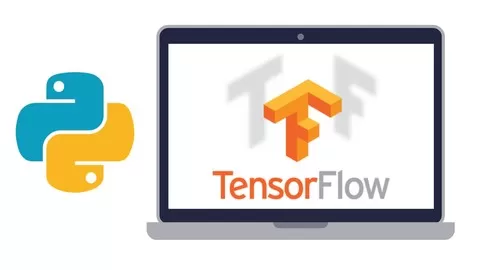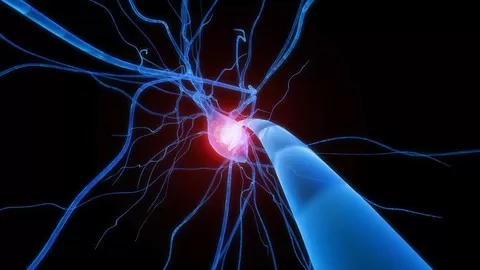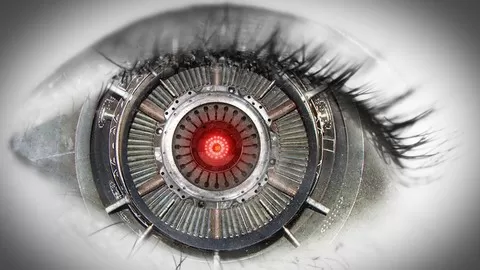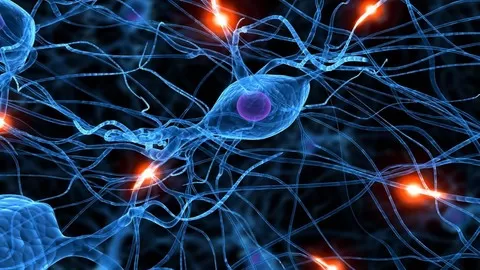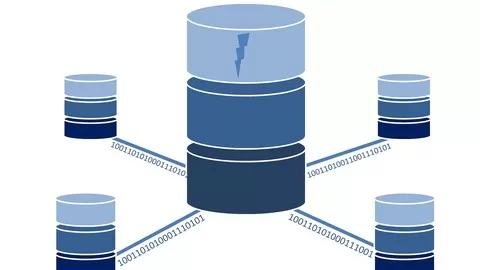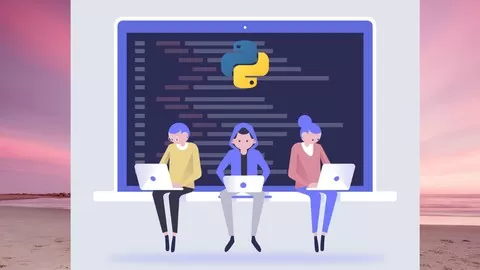A warm welcome to the Deep Learning Foundation course by Uplatz.
Deep Learning is fundamentally a type of Machine Learning (ML) and Artificial Intelligence (AI) and imitates the way humans gain certain types of knowledge. Deep Learning can basically be considered as a subset of Machine Learning, which on the other hand is a subset of Artificial Intelligence. Artificial Intelligence is a general term that refers to techniques that enable computers to mimic human behavior. Machine Learning represents a set of algorithms trained on data that make all of this possible.
Deep learning is an important element of data science, which includes statistics and predictive modeling. It is extremely beneficial to data scientists who are tasked with collecting, analyzing and interpreting large amounts of data; deep learning makes this process faster and easier. At its simplest, deep learning can be thought of as a way to automate predictive analytics. While traditional machine learning algorithms are linear, deep learning algorithms are stacked in a hierarchy of increasing complexity and abstraction.
Deep Learning, on the other hand, is just a type of Machine Learning, inspired by the structure of a human brain. Deep learning algorithms attempt to draw similar conclusions as humans would by continually analyzing data with a given logical structure. To achieve this, deep learning uses a multi-layered structure of algorithms called neural networks.
The design of the neural network is based on the structure of the human brain. Just as we use our brains to identify patterns and classify different types of information, neural networks can be taught to perform the same tasks on data. The individual layers of neural networks can also be thought of as a sort of filter that works from gross to subtle, increasing the likelihood of detecting and outputting a correct result. The human brain works similarly. Whenever we receive new information, the brain tries to compare it with known objects. The same concept is also used by deep neural networks.
Deep Learning Methodology
Computer programs that use deep learning go through much the same process as the toddler learning to identify the dog. Each algorithm in the hierarchy applies a nonlinear transformation to its input and uses what it learns to create a statistical model as output. Iterations continue until the output has reached an acceptable level of accuracy. The number of processing layers through which data must pass is what inspired the label deep. Deep learning simulates the human brain, enabling systems that learn to identify objects and perform complex tasks with increasing accuracy, and this is all without human intervention.
Deep learning is an advanced part of machine learning in which multi-layered neural networks – modeled to work like the human brain and learn from large amounts of data. Within each layer of the neural network, deep learning algorithms perform calculations and make predictions repeatedly, progressively ‘learning’ and gradually improving the accuracy of the outcome over time.
In the same way that the human brain absorbs and processes information entering the body through the five senses, deep learning ingests information from multiple data sources and analyzes it in real time.
Applications of Deep Learning
Deep learning drives many artificial intelligence (AI) applications and services that improve automation, performing analytical and physical tasks without human intervention. Deep learning technology lies behind everyday products and services (such as digital assistants, voice-enabled TV remotes, and credit card fraud detection) as well as emerging technologies (such as self-driving cars).
Deep learning is commonly used across apps in computer vision, conversational AI and recommendation systems. Computer vision apps use deep learning to gain knowledge from digital images and videos. Conversational AI apps help computers understand and communicate through natural language. Recommendation systems use images, language, and a user’s interests to offer meaningful and relevant search results and services.
Deep learning has led to many recent breakthroughs in AI such as Google DeepMind’s AlphaGo, self-driving cars, intelligent voice assistants and many more. With the advanced GPU-accelerated deep learning frameworks, researchers and data scientists can significantly speed up deep learning training, that could otherwise take days and weeks to just hours and days. When models are ready for deployment, developers can rely on GPU-accelerated inference platforms for the cloud, embedded device or self-driving cars, to deliver high-performance, low-latency inference for the most computationally-intensive deep neural networks.
Deep learning differs from traditional machine learning techniques in that they can automatically learn representations from data such as images, video or text, without introducing hand-coded rules or human domain knowledge. Their highly flexible architectures can learn directly from raw data and can increase their predictive accuracy when provided with more data.
Uplatz provides this comprehensive course on Deep Learning Foundation to help you get started with Deep Learning. This Deep Learning course covers an extensive explanation of the Deep learning concepts, introduction to neural networks, the Deep learning models, advanced Deep learning models, and the platforms & libraries used in Deep learning.
If you are aiming to become a Deep Learning Engineer or a Machine Learning Architect, then this Deep Learning Foundation course is an appropriate course for you. This course will also help you understand better the implementation of Deep learning in practical scenarios as well as it will form the basis of Deep Learning with Keras and TensorFlow courses.
Deep Learning Foundation – Syllabus
Module 1 – Introduction to Deep Learning
•Deep Learning: The Series Introduction
•What is a Neural Network
•Three reasons to go Deep
•Your choice of Deep Net
•Deep Learning Market
Module 2 – Deep Learning Models
•Restricted Boltzmann Machines
•Deep Belief Network
•Convolutional Network
•Recurrent Network
Module 3 – Additional Deep Learning Models
•Autoencoders
•Recursive Neural Tensor Network
•Generative Adversarial Networks
Module 4 – Deep Learning Platforms & Libraries
•What is a Deep Net Platform
•H2O ai
•Dato GraphLab
•What is a Deep Learning Library
•Theano
•Caffe
•TensorFlow
•Keras


